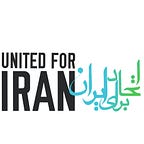Interview with Shirin Ebadi — “What the Iranian Government dreads most is that the world knows what it has done”
Our staff interviewed Shirin Ebadi, a human rights lawyer and winner of the Nobel Peace Prize, on the recent protests in Iran which left hundreds dead and thousands more imprisoned. Ebadi spoke primarily to the families who lost loved ones in the protests, and stated that the “most important thing the family can do is report what has happened.” She encourages them to interview with the media, post on social media, and do whatever they can to tell the world what happened during the Iran protests.
Ebadi further suggests that families go to the Iranian courts and register their claims concerning their loved ones. While she understands that the outcome of interacting with the courts may not be helpful, she says that the purpose of this action is to register the information through official sources, in order to document the evidence.
Ebadi says that the root of all the problems in the country lies in the inefficiency, corruption, and political structure of the Islamic Republic. She stated that the problem is the constitution of the country itself, and that “if the constitution is not amended, these problems will continue, and people will continue to take to the streets to express their opposition to the system.”
When asked why the government resorted to such brutal methods to suppress the protests, Ebadi stated that she believes it is because the government is very “weak,” and feels vulnerable to the will of the people. She described how Iran is now in its worst political situation in recent memory, with widespread embezzlement, misguided regional policies, and the ongoing economic effects of sanctions. She believes the Iraqi and Lebanese protests, along with other circumstances throughout the Middle East, have added to the government’s sense of panic. As a result, she believes the government resorted to cruel suppression in order to solve the problem as quickly as possible.
Ebadi also expressed concern with the ongoing political prisoner situation inside the country, specifically with respect to the threat of torture. She cited the case of Maziar Ebrahimi, a former political prisoner who interviewed with the BBC and described his torture, and how he was made to falsely admit to crimes while under duress. Ebadi expressed deep concern that individuals involved in the recent protests may likewise be experiencing torture.
When asked about the internet shutdown during the November protests, Ebadi stated that “The UN General Assembly made internet access a human right a few years ago, and the Islamic Republic has repeatedly stated that making their own national internet is one of their core goals. The Islamic Republic aims to take full control of internet access within the country.”
Ebadi concluded by stating that leaders of European countries need to recall their ambassadors from Iran, and reduce their overall political relationships with Iran as a form of protest. While going short of calling for countries to cut off their political relationships entirely, believes that the removal of ambassadors “will show Iranian authorities that the world is responsibly and seriously protesting the widespread human rights abuses in Iran.”
